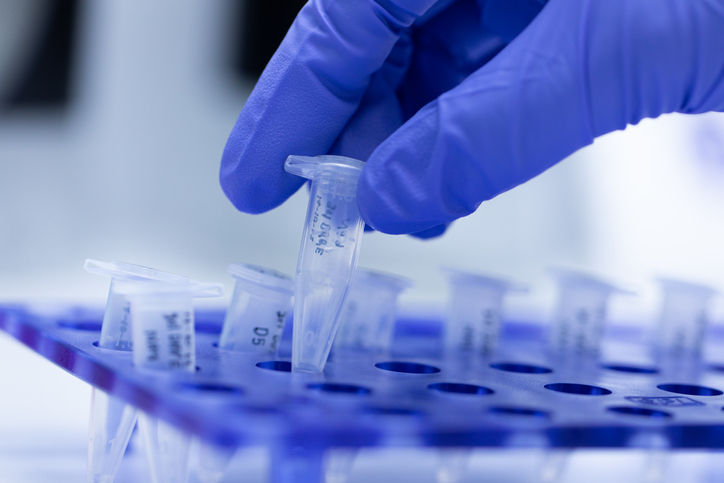Author: Olivia Dimmer
-

Novel Approaches for Correcting Gene Expression Insufficiency
A new molecular technology capable of binding to mRNA and regulating gene expression may offer a new avenue for treating diseases caused by insufficient protein levels, according to a study published in Nature Communications.
-

Student Investigates AI Solutions to Medical ‘Loose Ends’
Roger Smith, an eighth-year student in Feinberg’s Medical Scientist Training Program, is developing an artificial intelligence tool to tie up medical loose ends identified in electronic health records.
-

Pioneering Automated Proteoform Imaging
Investigators led by Neil Kelleher, PhD, have developed an automated technique for imaging proteoforms in ovarian cancer, according to results published in Nature Communications.
-

Study Finds Antidiabetic Drug Effective for Weight-Loss
Tirzepatide, an antidiabetic drug, was found to be effective in helping individuals who are overweight or have obesity and without diabetes lose weight in combination with other lifestyle changes, according to a recent clinical trial published in Nature Medicine.
-

Developing Custom AI Language Models to Interpret Chest X-Rays
Northwestern Medicine scientists have developed an artificial intelligence (AI) tool able to interpret chest X-rays with accuracy rivalling that of a human radiologist, according to findings published in JAMA Network Open.
-

Improving Nanotherapeutic Vaccine Delivery
Northwestern Medicine scientists have developed a more effective way of creating nanotherapeutic vaccines and medicines, according to a study published in ACS Nano.
-

New $24 Million Grant to Measure Child Health Outcomes
Northwestern University has been awarded a $24 million grant to standardize measurement tools used to evaluate childhood health nationwide as part of the National Institutes of Health Environmental influences on Child Health Outcomes (ECHO) Program.
-

Study Identifies Genetic Cause for Some Brain Tumors
Scientists have uncovered a genetic explanation for a subset of common brain tumors, according to a study published in Nature Communications.
-

Developing New Approaches for Spinal Cord Injury
Northwestern Medicine scientists have developed a molecular “scaffold” capable of enhancing electrical activity and growth in neurons, which may prove useful in treating spinal cord injuries, per results published in ACS Nano.
-

Identifying Molecular Culprits Underlying Organ Rejection
Investigators have identified how bacterial infection can alter immune response to precipitate organ rejection in mice, findings which may prove useful for improving transplant tolerance in humans, according to a recent study published in the Journal of Clinical Investigation.






